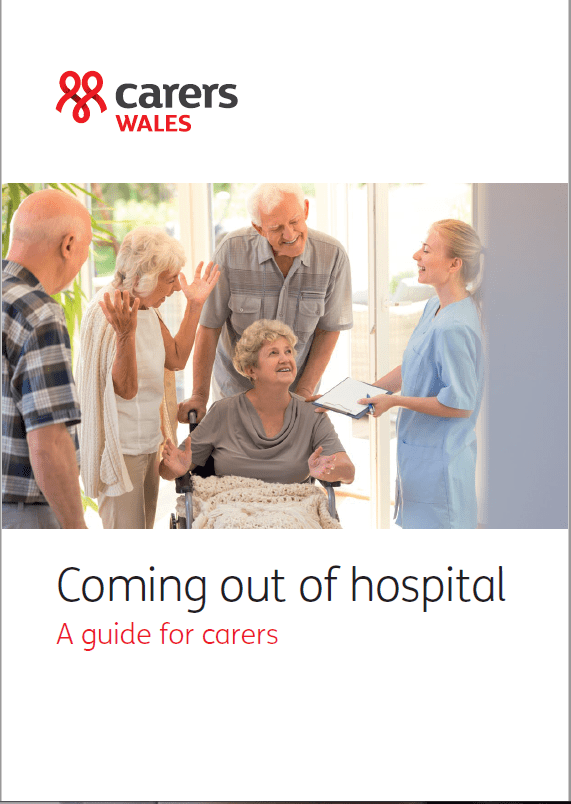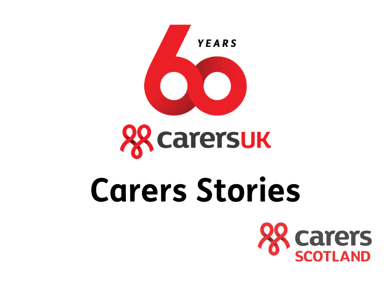Coming out of hospital – what to expect
When someone you care for is in hospital, you may wonder how you will cope with their needs when they come out. You may even be preparing to take on a caring role for the first time.
Remember that caring is a choice and you should not feel compelled to take on the role if you do not feel able to commit to the responsibilities involved.
We help clarify what you can expect, what steps should be followed, and what to do if things go wrong.
Answers to some common questions
It can be a worrying and uncertain time when someone you are caring for – or close to – is in hospital and you may wonder what will happen when they leave hospital. You might be considering looking after them for the first time. Or you might be feeling concerned that the needs of the person you’re already caring for will be greater, increasing their dependency on you.
It is your choice whether or not you decide to take on a caring role and it’s vital to think about how this will affect your life and wellbeing. If you feel able to offer some help, consider what type and level of support you’re able to provide – for example perhaps you would like to provide some help with transportation but would need assistance to deal with personal care.
Each hospital will have its own discharge policy. You can ask for a copy from the ward manager or Patient Advice and Liaison Service.
Planning around the person’s discharge should take place as soon as they are admitted to hospital. It is important to notify the hospital at the earliest stage possible if you are the carer or planning to care for them in future, so that the relevant healthcare team can make sure you are involved in the process and any plans around their continuing care after leaving hospital.
You can be fully involved as long as the person concerned is happy for you to be. If on the other hand, they do not want you to be involved, you should be notified of this early on. If consent is given, the healthcare team should be willing to work with you and hear your views and concerns to make sure appropriate support for the person you’ll be looking after will be put in place before they leave hospital.
If you have Lasting Power of Attorney (LPA) for the person you care for, you should be able to make certain decisions on their behalf concerning their health and welfare if they are unable to. If there is no LPA that’s been set up in advance, then the healthcare professionals must act in the person’s best interests according to the law, but you can also be involved in this process.
The following should take place:
- An assessment – to see if they’re well enough to leave hospital
- A discharge assessment* – to see if they’ll need support once they’ve left hospital
- A carer’s assessment – to see if you’ll need any support if you plan to look after them and help meet their needs
- A written care and support plan – produced for the person in hospital, outlining how their support will be provided. You should also receive a support plan too if you’ve had a carer’s assessment.
- The support outlined in these support plans should be put in place as soon as possible.
You should be notified both verbally and in writing of the future care services needed for their wellbeing as well as the relevant information about their future treatment and care.
You can ask for this to be given in a format that’s accessible for you or for any points you are not clear on to be explained.
Just before the person leaves hospital, the following should also happen:
- Transport should be arranged if needed.
- You should each have copies of the care and support plan, and the support plan (for you).
- Within 24 hours the GP of the person you care for should have been sent their discharge plan.
- The person you care for should have any medication or equipment needed at home with instructions on its use.
- Support should be in place from the day of discharge.
This should cover the following:
Usually a team of both health and social care professionals will assess if the person you care for will have specific needs on leaving hospital.
They will look to see if they need any intermediate care, reablement care, NHS continuing healthcare, other NHS services and/or community care services eg/ from the local council or trust.
What is intermediate care? Services such as nursing, occupational therapy or physiotherapy designed to promote faster recovery. It can take place in a person’s home or at a day care facility or in residential care for up to six weeks (first six weeks should be free).
What are reablement services? After-care services to help people live more independently and prevent the risk of them going back into hospital. They are usually free for the first six weeks and goals are agreed with the patient.
What is NHS continuing healthcare? If after leaving hospital, you will have continued significant healthcare needs, you may be eligible for a package called NHS Continuing Healthcare – see our webpage for more details.
In Wales, a financial assessment may be carried out if there will be a charge involved for services (contact Carers Wales to find out what the maximum charge would be).
You might also have questions about what you might need to do regarding the benefits of the person you care for whilst they’re in hospital or work arrangements – eg, requesting time for appointments – see our factsheet, Coming out of hospital, for more details.
If you’re unhappy with the care, treatment or discharge arrangements that you or someone you care for has received, there will be a process you can follow to complain or challenge this.
You may want to make an informal complaint initially by speaking to the person responsible to see if the matter can be resolved quickly and directly.
Request a copy of the complaints procedure from the service provider and follow the steps outlined. They should provide this in an accessible format for you. For more information on what to expect depending on where you live, see our factsheets (or find out about free personal care if you’re based in Scotland).
If you need to go into a hospital for a period of time, it may be necessary to make arrangements for the person(s) you care for to make sure they continue to be looked after whilst you're away.
We would recommend setting up a contingency plan so that you or your family or friends don't have to worry about arranging cover at a stressful time at the last minute. Our step-by-step guide to creating a contingency plan could help.

Latest updates

Charity calls for action with half of Scotland’s unpaid carers cutting back on food and heating amidst deteriorating health

Scotland’s National Carer Organisations launch election manifesto

Full Time Caring: A Journey in Mastering Mindfulness - Part 3

Carers UK marks 60 years of the carers’ movement and women’s leadership at Mary Webster Lecture
Got a question about caring?
Every day we hear from people who need help with looking after a friend or family member
Become a member for free
Joining Carers UK is free and takes just a few minutes.



